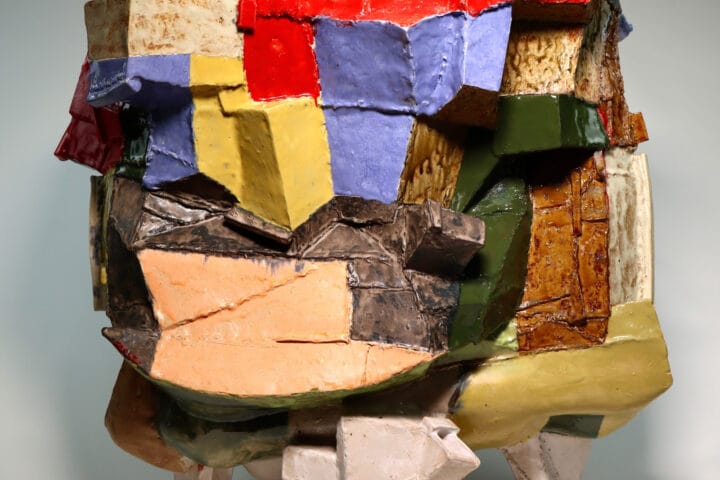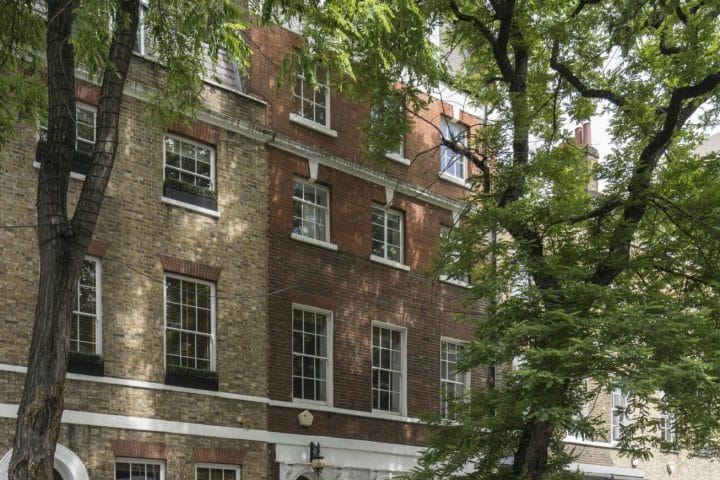New Beginnings is a group exhibition of four artists based in different cities working in the expanded field of painting and abstraction, including works by Paul Barlow, Harminder Judge, Osamu Kobayashi, and Andrew Luk. Painting in the manner of sculptor, builder, gardener, and designer, these artists inhabit the precarious balance between stability and entropy, ideation and abstraction, optimism and nihilism. In their works, two key themes emerge: the uncertainty of being, and the primacy of action despite.
The works exhibit subtle and intentional marks left behind by the artist’s hands and body, manifested through dynamic gestures of control and release. The material ground (canvas, plaster, metal) becomes personal sites for taking action – the act of making becomes metaphors for the exigency of genesis, the power of change, the possibility of being touched and transformed, and the promises of new beginnings.
Harminder Judge creates colourful plaster paintings that are portals to an ineffable world. Judge takes inspiration from the abstract paintings from the esoteric tantric tradition in 17th century Rajasthan, India. Intended to be used as a visual aid for meditation, these images are more diagrams than painting, as material portals to an immaterial realm. They demand viewers not to look at them, but to look through them.
Judge describes himself as an artist-maker “who paints like a sculptor, who sculpts like a builder”. His experience as a housebuilder gives him deep intimate knowledge and bonding for the material of plaster, which involves a laborious process that creates meaning in repetitive rituals. Judge fuses pools of pigment with wet plaster, agitating the mixture to create a gradient of merging colour and moving texture. As the image is cured and the front of the painting is revealed and polished, with incredible depth, we appear to be looking into a tranquilising harmony of thick fog and reflective liquid. A meandering colour field of graceful order is born out of the layering of aqueous chance and choreographed uncertainty.
Paul Barlow is an artist who creates geometrical paintings that are psychological, materializing pictures that hold the in-between spaces of recognition and unconsciousness, awareness and vagueness, clarity and mystery. Barlow often abstracts these states into universal patterns expressed in the physical world, resembling interference of light waves, fractals, and halos.
Unlike traditional oil painters who work with the logic of addition by laying on viscous pigments atop each other, Barlow subtracts and removes. Using water as a solvent, he strips away residues of colour using a sequence of repetitive motions. Like currents forming sand ripples, seawater eroding coastlines, and the flow of a river shaping a meander; seeping and spreading, water configures the patterns and silhouettes on Barlow’s canvas. The pigments react, sediment and congeal into gradients of hues, forming micro-geological strata of vegetative tendrils, oceanic trances, and psychedelic hallucinations. Like the ceramicist’s application of glazes and oxides whose outcome is unknown until it comes out of the kiln, or the photographer who develops the image in the darkroom, Barlow’s pictures are reliant on the intelligence of liquids, the beauty of contingency, and the discipline of trial and error.
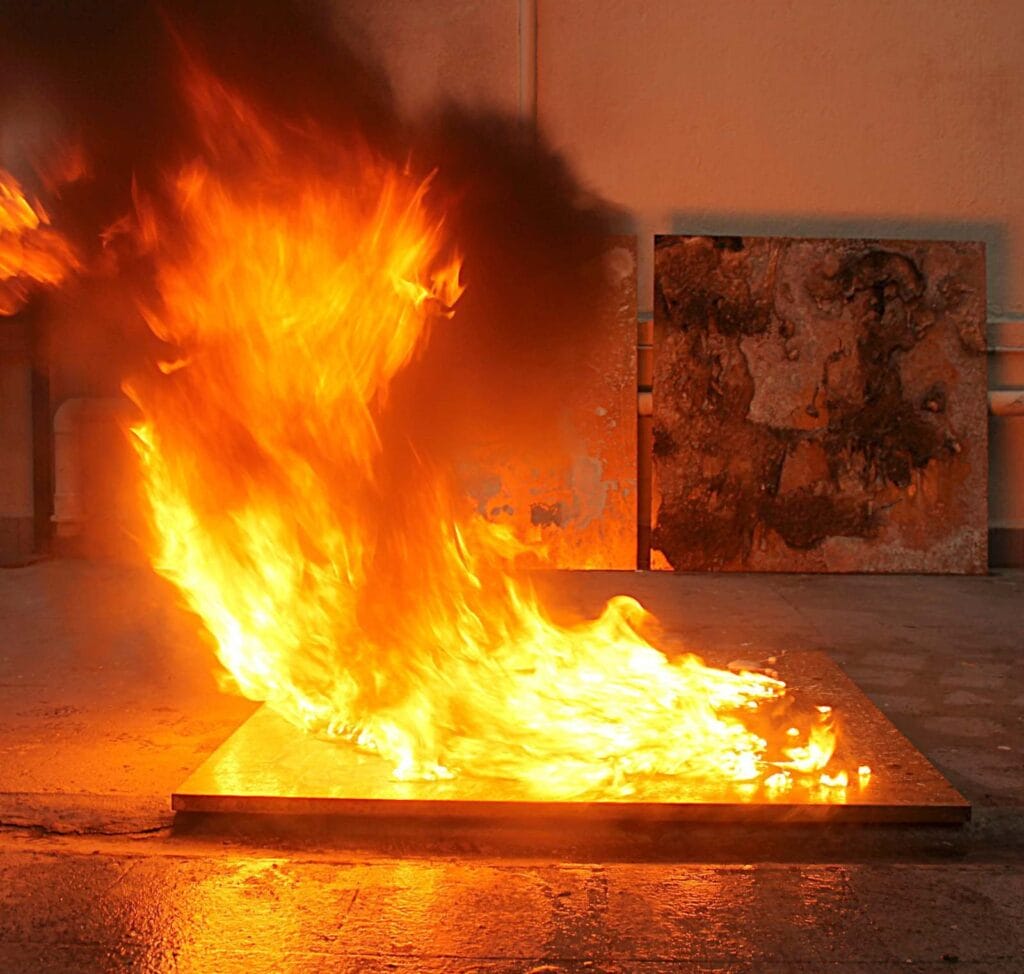
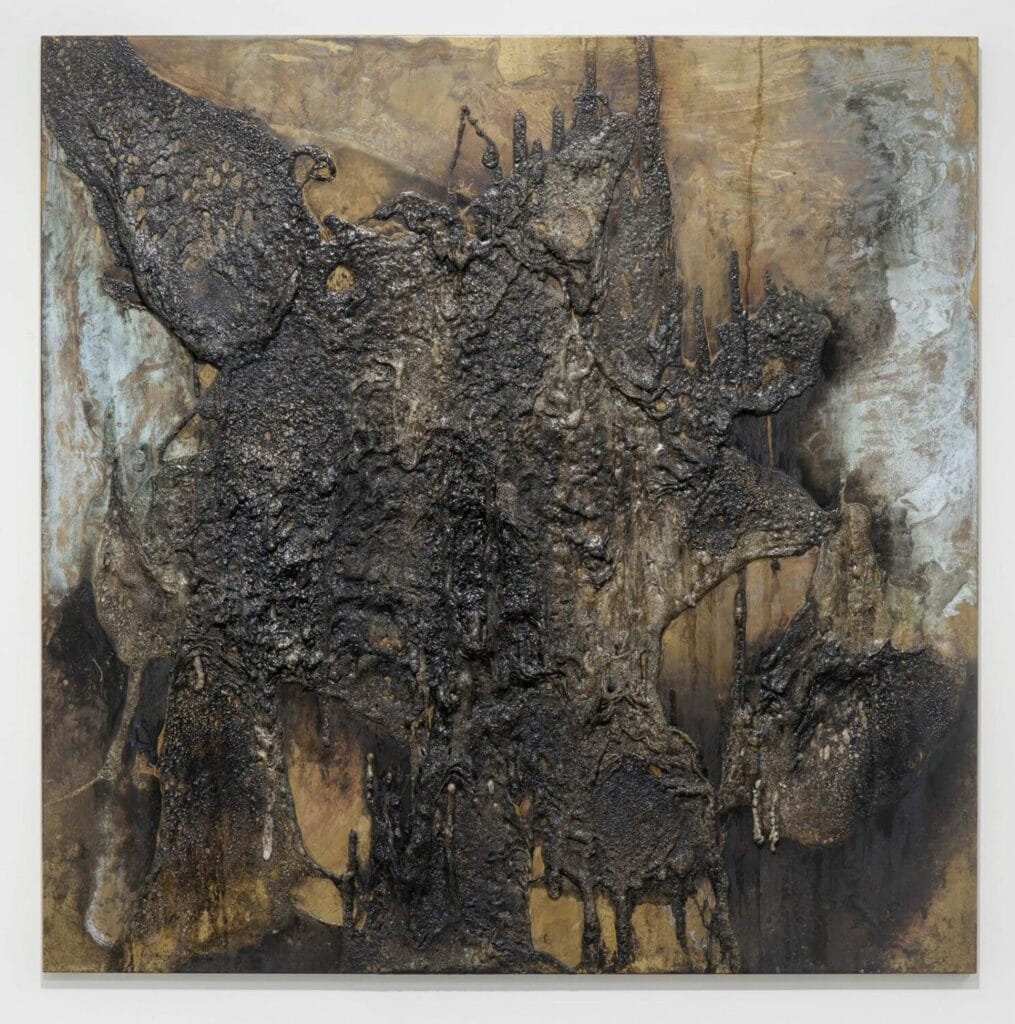
Rejecting traditional modalities of painting, Andrew Luk turns towards an exploration of materials and surfaces that see to both the establishment and destruction of civilization. Creating mimic paintings of sorts, the artist enacts upon the ‘canvas’ surface, treating it as a foundational plane for building and intervention. Working with volatile processes and metamorphosing materials, Luk likens transformation to the historical abstraction of time and space.
Risk and chance occupy a central role in Luk’s practice, wherein unstable abstraction takes the action of scorching combustion of napalm on brass, uncontrollable expansion of expanding foam protruding hardened cement, and archeological sedimentation of prehistoric beings in resin. In the three series of Oxidization/ Immolation, The Fragility of Things Built from Rocks, and Deep Earth Event Horizon, Luk investigates the law of entropy, creative agency and imaginative expanse of worlds beyond humans.
Osamu Kobayashi’s compositional process is a mechanical and conceptual puzzle. Kobayashi’s practice draws connections to Modernist design movements, geometric abstraction, as well as manga and anime visual culture. Like a mathematician balancing an algebraic equation, the painter solves for a visual solution with line, colour, shape and size. The picture plane is a field of action and counteraction, a dualistic plane between flatness and illusion of space, softness and hard edge, tension and release, stillness and dynamism, seriousness and lightness.
With a self-made contraption that links a bevy of paint brushes, the artist applies paint onto the canvas in a grand sweep. The artist twists and turns into awkward positions to curve the seemingly continuous stroke, leaving uniformly spaced traces in a grand sweeping colour field; the marks resemble the elegantly raked sand in the rock garden of Ry?an-ji in Kyoto.
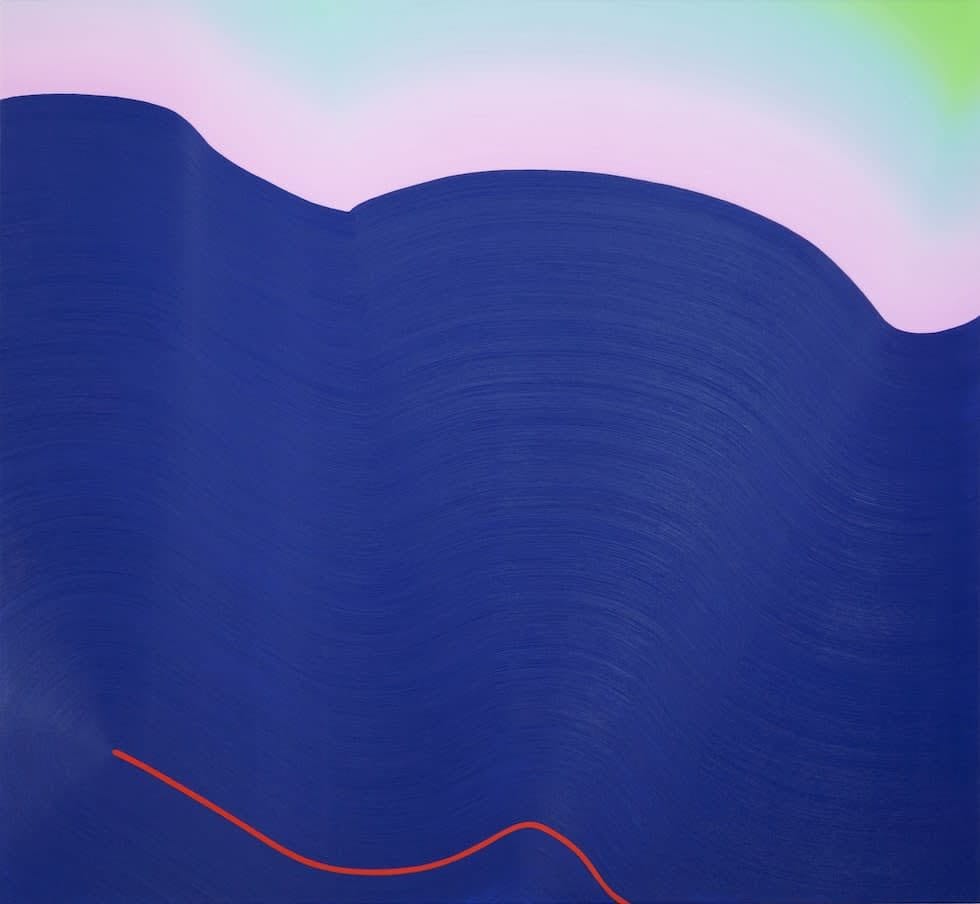
About Blindspot Gallery
Set up in 2010, Blindspot Gallery is a Hong Kong-based contemporary art gallery. The gallery began with a primary focus on contemporary photography and image-based art, and has evolved to include diverse media in contemporary art. The gallery represents both emerging and established artists, mainly from Hong Kong and the region but also beyond.
About the Artists
Paul Barlow (b.1988, Sheffield, UK) is a painter who graduated from the Royal Academy in 2021 and was recently selected for Bloomberg New Contemporaries at the South London Gallery. His abstract paintings are created using water as a solvent to strip away residues of colour on his paintings. Barlow currently lives and works in London, UK.
Harminder Judge (b.1982, Rotherham, UK) is an artist whose practice spans object making, performance and installation. His most recent body of work engages with a history of Indian abstract painting related to tantric ritual. Judge recently held a solo exhibition “Mountain and Mercies” at galeriepcp in Paris. Judge currently lives and works in London, UK.
Osamu Kobayashi (b.1984, Columbia, South Carolina, USA) creates abstract paintings of whimsical colors with sweeping brushstrokes, creating scenes that range from familiar spaces to imaginary dimensions. Kobayashi recently has a solo exhibition “Hand in Hand” at LA Artcore in Los Angeles. Kobayashi currently lives and works in New York, USA.
Andrew Luk (b. 1988, New Jersey, USA) is a Hong Kong artist who works across a range of media examining the intricacies of the human experience as well as the myths and histories associated with civilisation building. Luk has participated in exhibitions at Asia Society Hong Kong (2019), Tai Kwun, Hong Kong (2019) Power Station of Art, Shanghai (2018) amongst others. Luk currently lives and works in Hong Kong.


